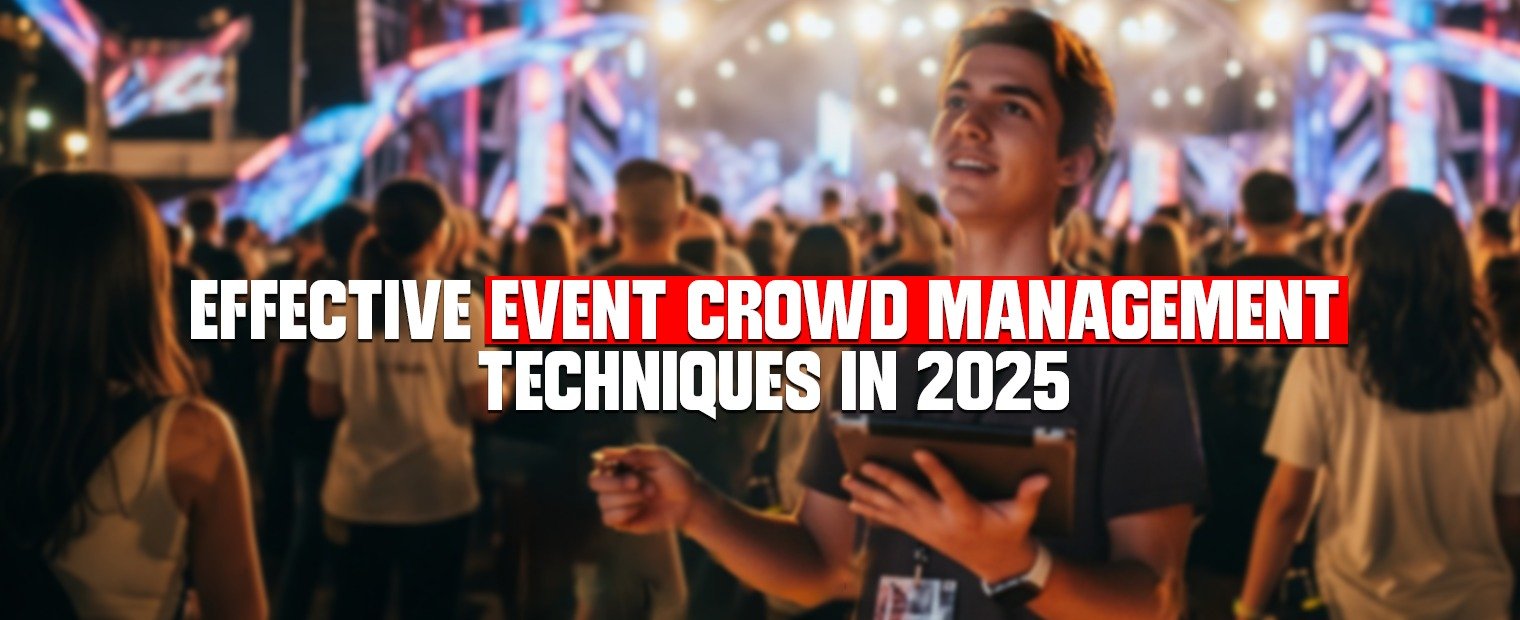What Every Future Event Manager Must Know
A Wake-Up Call from Bengaluru
On June 4, 2025, thousands gathered outside the M. Chinnaswamy Stadium in Bengaluru, celebrating RCB’s epic win. The joyful gathering quickly collapsed into disorder and a deadly stampede, leaving behind deep sorrow. A mismanaged crowd, overwhelmed security, and poor on-ground communication resulted in 11 lives lost and over 30 people injured.
It was a harsh lesson for all of us to learn that event safety must always remain a top priority. Managing the crowd isn’t just about ropes and barricades but about real skills, smart planning, and being ready for any twist in the tale. And if you’re training to become an event manager, this should be a lesson you carry with you.
Why You Need Crowd Management Training
It’s About More Than Just Organizing
If you’re thinking of building a career in event management, get this straight: you’re not just putting up decorations or booking venues. You’re dealing with people. Hundreds or even thousands of them. And your job is to make sure everything flows smoothly without risking anyone’s safety.
A well-trained event manager understands how people behave in groups, what triggers panic, and how to prevent chaos before it begins. Think of it like conducting an orchestra, where you don’t see the crowd as a problem, you direct their movement like a pro.
What Went Wrong in Bengaluru?
- Gates were closed while fans were still arriving
- Last-minute announcements confused the public
- There was no visible staff guiding the crowd
- Fans were uninformed about the entry process
- Emergency plans were missing or unclear
Events like this remind you why practical training is essential and why theoretical knowledge alone won’t cut it.
Must-Have Crowd Control Techniques for Event Managers
Here are some key practices that every aspiring event manager should know:
1. Pre-Event Planning
- Review the site map carefully to identify exits and possible choke points.
- Use ticket insights to estimate how many people are likely to attend and plan accordingly.
- Coordinate with security agencies early
2. Entry and Exit Strategies
- Use timed or staggered entry passes
- Clearly mark and separate entry/exit points
- Assign floor managers at each gate to monitor the inflow
3. Emergency Protocols
- Train your team for quick evacuation drills
- Make sure all staff know basic first aid
- Have a communication channel open between departments (walkie-talkies, designated chat groups)
4. Clear Signage and Announcements
- Make important messages available in multiple languages
- Keep sound systems tested and functional
- Have trained speakers in place who can keep the audience informed and composed throughout the event.
5. Use of Technology
- Install surveillance to monitor crowd movement
- Use wristbands or QR codes for faster identification
- Crowd simulation tools help predict movement patterns
When these Event Crowd Management Techniques are part of your learning process, you’re far more prepared for real-world situations.
It’s Not Just About the Event – Other Skills Matter Too
Public Relations in Times of Crisis
When things go south, the world doesn’t wait. Social media gets flooded with real-time reactions. A PR professional who understands tone, timing, and transparency can protect the brand and the people involved. Learning PR isn’t extra, but it’s a part of being a full-circle event manager.
Digital Marketing Can Help Before & After
Running paid ads for the event, setting proper expectations through content, and communicating real-time updates via social media are essential. When people are well-informed, it lowers the risk of confusion or unrest.
Photography and Documentation
No, it’s not just about pretty pictures. Trained photographers at events capture crucial moments, record timelines, and help investigate incidents if anything goes wrong. Every serious event management student should get a feel for live documentation.
Travel and Ticketing
When people are flying in or traveling from far, your job includes helping them get there safely and efficiently. Event ticketing is also a technical area that requires attention to time slots, entry zones, and backend coordination with venue authorities.
Learn All This Under One Roof
A common question students raise is, “Is there a place that actually teaches these real-world event skills?” If you’re based near Delhi NCR, one event management course that has gained attention for covering all these layers: event design, logistics, PR, digital strategy, and even travel planning is by IDEA Center, a top event management institute in Noida.
Their 12-month advanced training includes live project work, mentorship from industry professionals, and a 6-month paid internship. From weddings to concerts to large-scale corporate events, you learn it all by getting real hands-on exposure.
And yes, they help with job interviews and 100% placement assistance. You’re not left guessing once the classes end.
How You Benefit from Being in Noida or Delhi NCR
Being in Noida means you’re close to the heart of action. Delhi NCR sees:
- Music festivals
- Political summits
- Fashion shows
- Award nights
- Sports events
This means more chances for you to assist, volunteer, intern, and eventually lead events.
Extra Perks of Studying in Noida
- Easier access to top event firms
- Affordable hostel and PG options
- Well-connected metro network
If you’re serious about building a real career, not just collecting certificates, studying in an active city matters.
Conclusion
Event management is exciting, no doubt. But behind the lights and sound is a system that keeps everyone safe. If you’re stepping into this field, know that you’re taking on real responsibility.
From learning how to control crowds to managing digital chaos, the skills you build now shape your future. Make sure your course covers the serious stuff and not just the glam.
Think you’re up for it? Then start with a course that gets its hands dirty. The events world needs smart heads and steady hands.
[Want to be more than a planner? Train to be a problem-solver]
Frequently Asked Questions
Absolutely. Many institutes offer beginner-friendly training with practical exposure. The idea is to learn by doing, no matter your starting point.
Not all of them. That’s why it’s important to choose wisely. Look for courses that cover risk management, emergency planning, and live event simulations.
Freshers can start around ₹25,000-₹40,000/month, depending on your role, project exposure, and how much real event work you’ve done.




